16 Ways to Say Hello in Japanese: Greetings for Every Situation
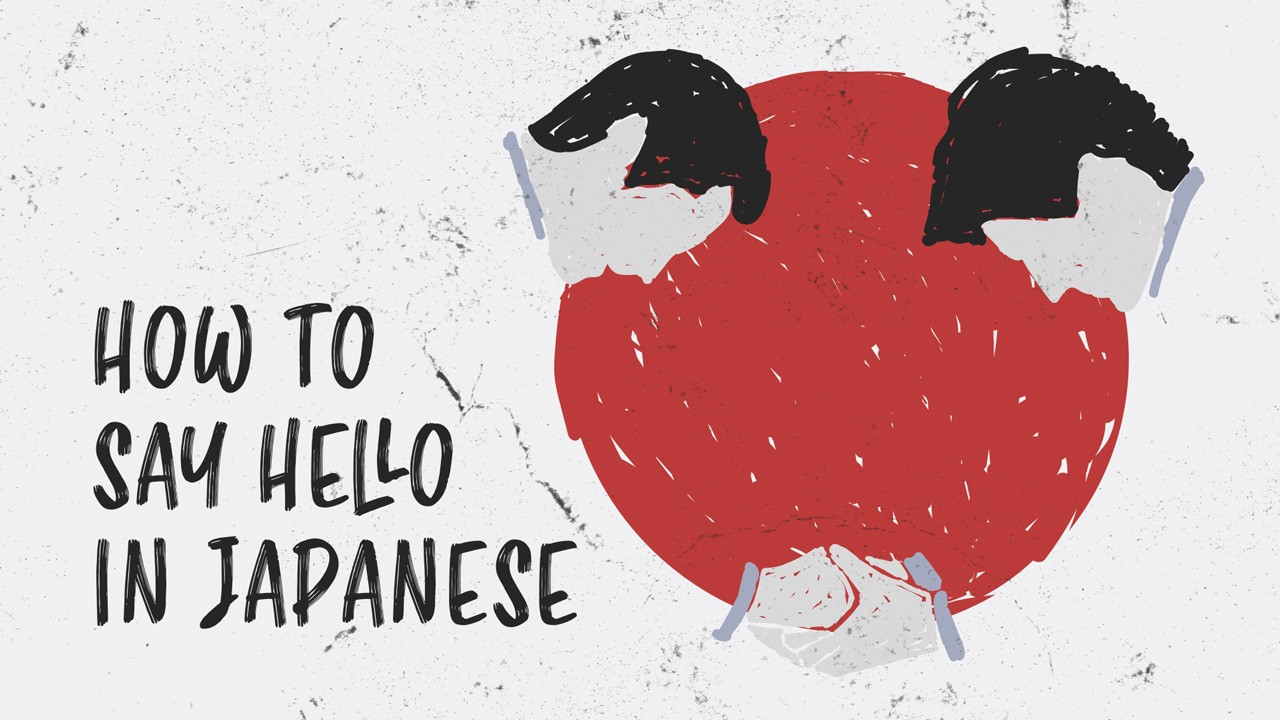
Quick view
Learning how to say hello in Japanese is an essential part of getting acquainted with the language. One of the first things you'll learn is how to greet someone in Japanese, as greetings play a crucial role in communication. However, there are several ways to say "hello" in Japanese, depending on the level of formality and the situation. In this guide, we’ll explore 15 common Japanese greetings suitable for various situations, from basic to more formal expressions.
Basic Greetings: How to Say Hello in Japanese
| Phrase | Meaning |
| Ohayou (おはよう) | Good morning (informal) |
| Ohayou gozaimasu (おはよう ございます) | Good morning (formal) |
| Konnichiwa (こんにちは) | Hello or Good day |
| Konbanwa (こんばんは) | Good evening |
1. Ohayou (おはよう)
Meaning: "Good morning" (informal).
Pronunciation: Oh-ha-you (the "you" is pronounced with a long "o" sound).
Usage: Use ohayou when greeting friends, family, or people of the same age in the morning, typically before 10 a.m.
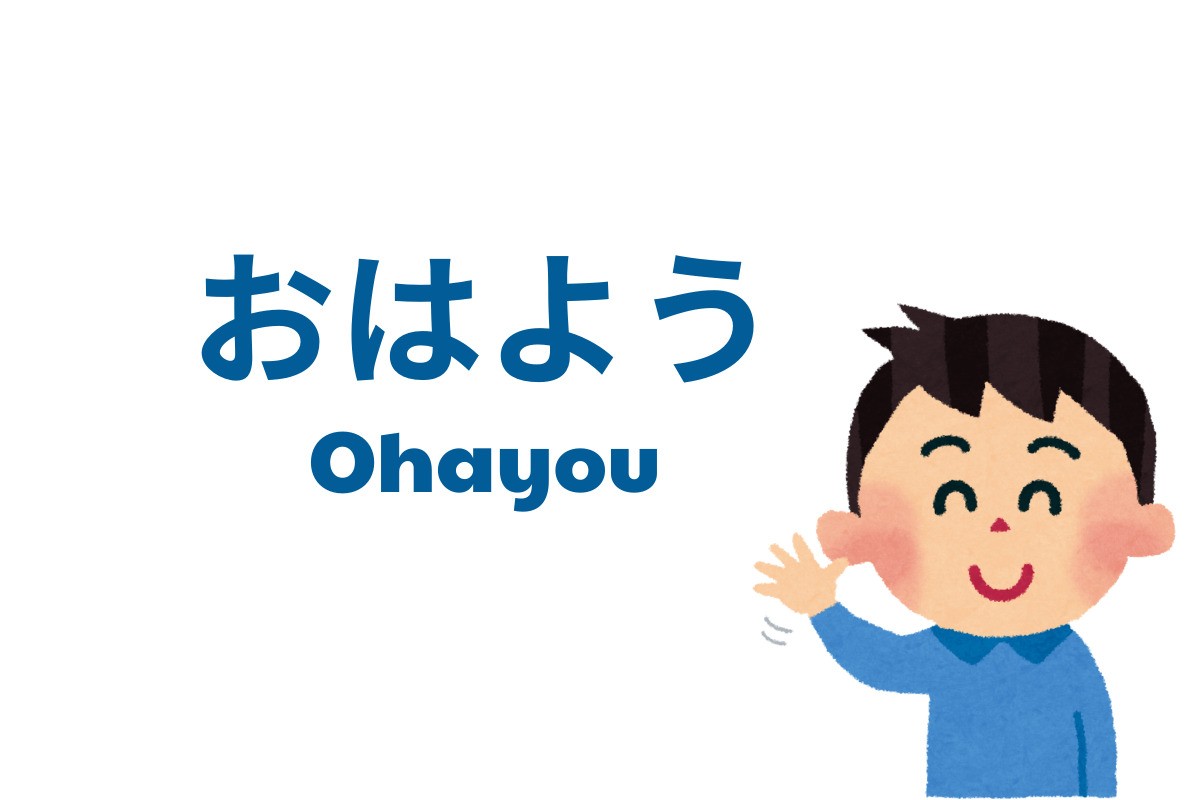
2. Ohayou gozaimasu (おはよう ございます)
- Meaning: "Good morning" (formal).
- Pronunciation: Oh-ha-yoh goh-zah-ee-mahs.
- Usage: This polite version is suitable for elders, strangers, or superiors such as teachers or bosses. It’s more respectful than the informal ohayou.
3. Konnichiwa (こんにちは)
- Meaning: "Hello" or "Good day".
- Pronunciation: Koh-nee-chee-wah.
- Usage: The most common way to say hello in Japanese, used from mid-morning to the afternoon (10 a.m. to 5 p.m.).
4. Konbanwa (こんばんは)
- Meaning: "Good evening".
- Pronunciation: Kohn-bahn-wah.
- Usage: Use this greeting in the late afternoon or evening (after 5 p.m.). It’s polite and works for both friends and strangers.
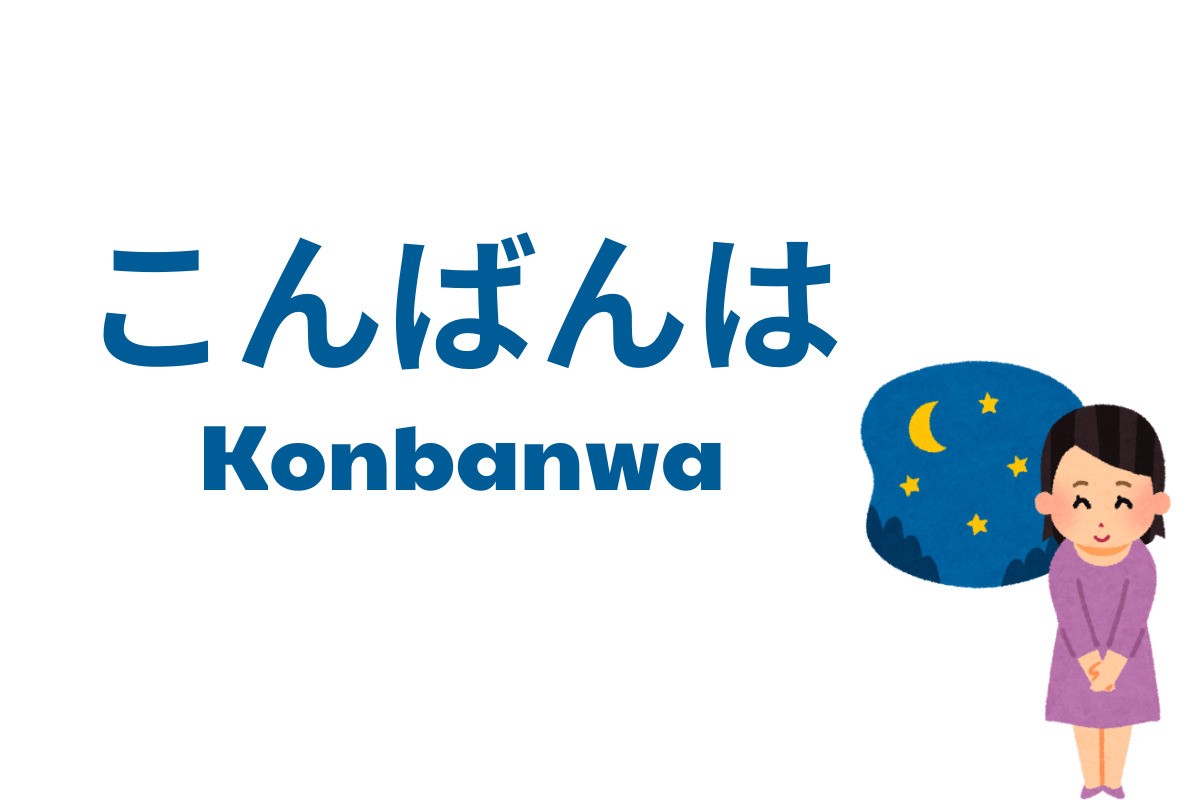
If you are interested in how to say hello in Japanese, you can also refer to "How to introduce yourself in Japanese" through the article: How to say hello my name is in Japanese.
Informal and casual greetings with the word "Hi" in Japanese
| Phrases | Meaning |
| Moshi Moshi (もしもし) | Hello (used on the phone) |
| Irasshaimase (いらっしゃいませ) | Welcome |
| Tadaima (ただいま) | I’m home |
| Ojamashimasu (おじゃまします) | Excuse me for disturbing |
5. Moshi Moshi (もしもし)
- Meaning: "Hello" (used on the phone).
- Pronunciation: Moh-shee moh-shee.
- Usage: A friendly greeting when answering the phone. Avoid using it in formal contexts.
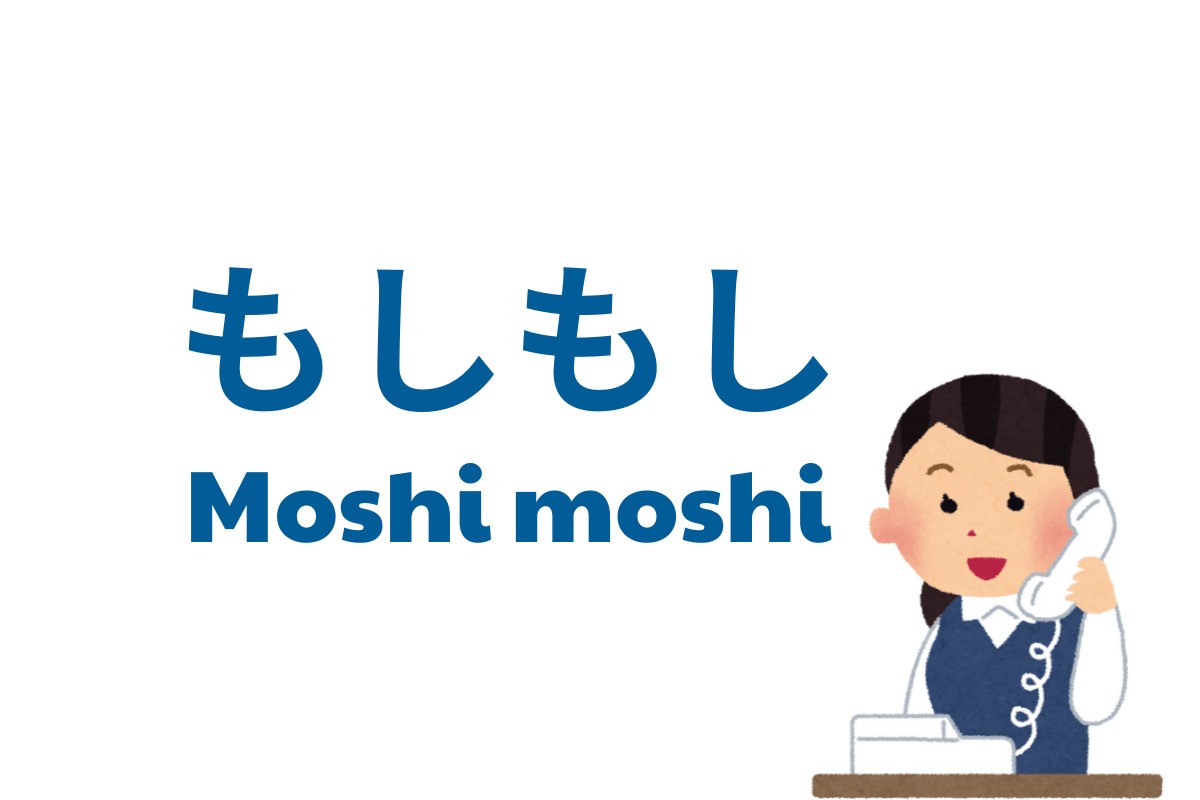
6. Irasshaimase (いらっしゃいませ)
- Meaning: "Welcome".
- Pronunciation: Ee-rah-shy-mah-seh.
- Usage: Commonly used by store staff to welcome customers, but not used for personal greetings.
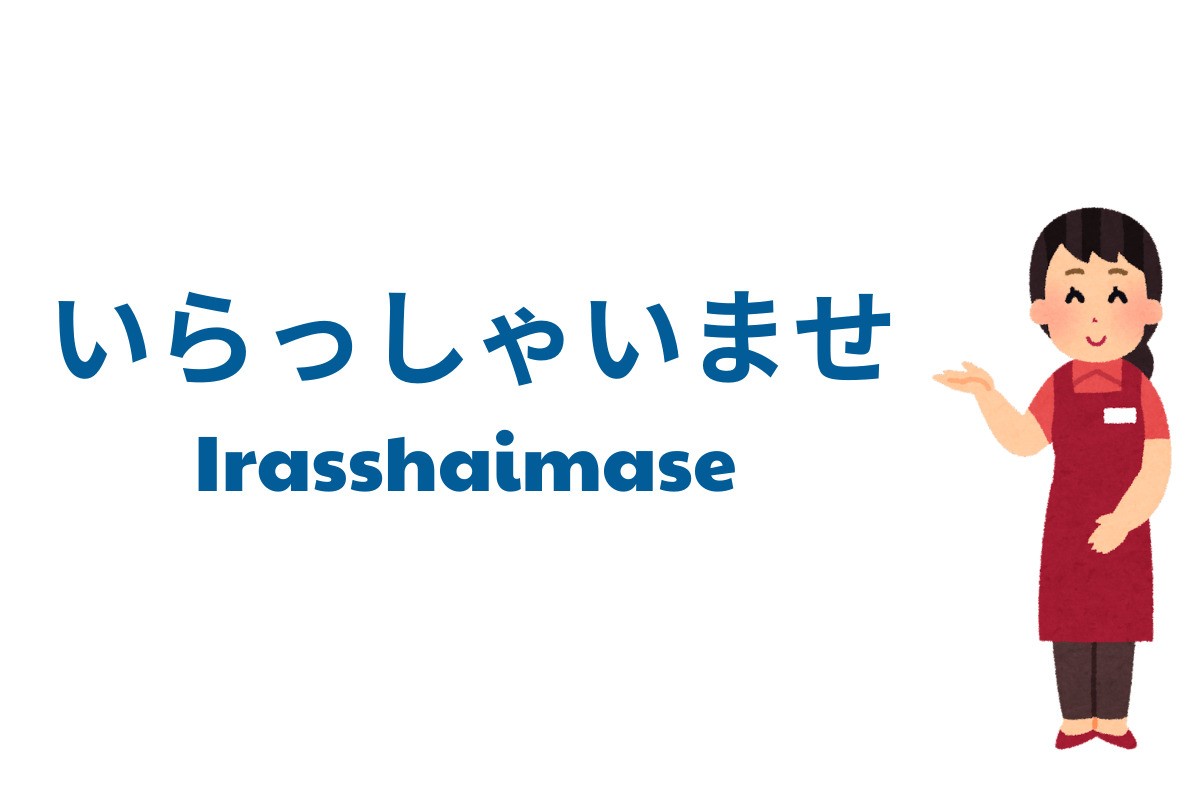
7. Tadaima (ただいま)
- Meaning: "I’m home".
- Pronunciation: Tah-da-ee-mah.
- Usage: Use this when returning home. Family members usually respond with okapi ("Welcome back").
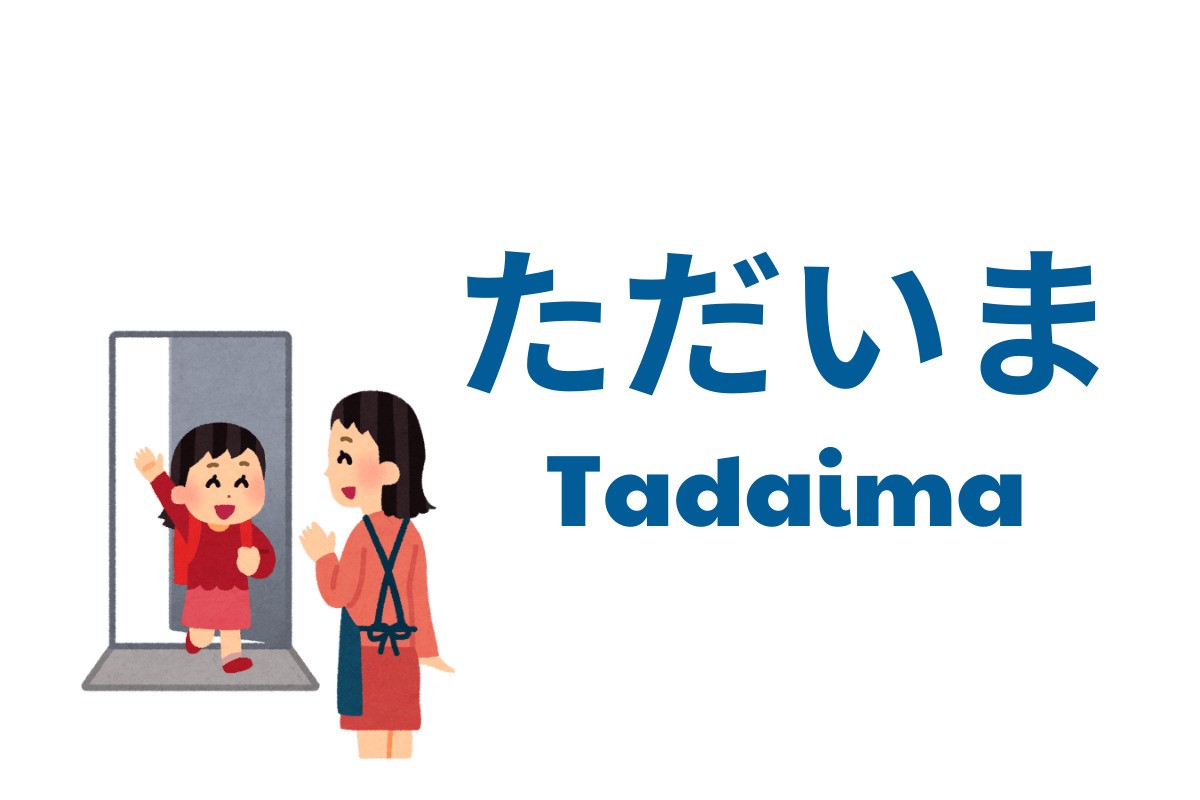
8. Ojamashimasu (おじゃまします)
- Meaning: "Excuse me for disturbing" you.
- Pronunciation: Oh-jah-mah-shi-mahs.
- Usage: This is said when entering someone else’s home, showing respect for the host’s space.
Greetings for specific situations
9. Osewa ni natteorimasu (お世話になっております)
- Meaning: "Thank you for your continued support".
- Pronunciation: Oh-seh-wah nee nah-teh-oh-ri-mahs.
- Usage: This is commonly used in formal business settings to show gratitude for someone’s ongoing support or assistance.
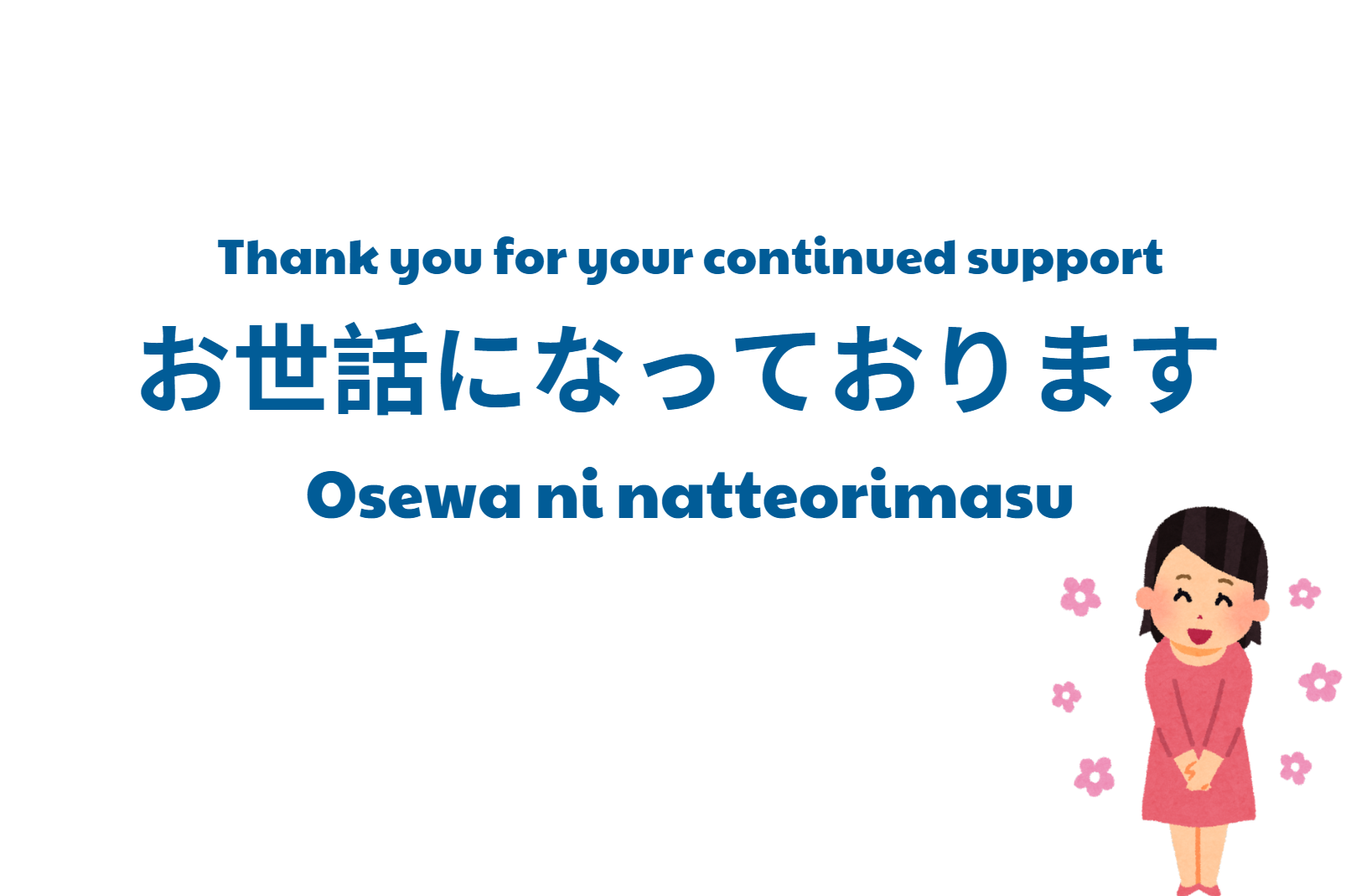
If you are a beginner and have limited vocabulary, please refer to and learn more common vocabulary in daily life through the article: Top Basic Japanese Words to Learn for Daily Conversations.
10. Ohisashiburi desu (おひさしぶりです)
- Meaning: "Long time no see".
- Pronunciation: Oh-hee-sah-shi-boo-ree dehs.
- Usage: This is used when meeting someone you haven’t seen in a while. The level of formality can be adjusted by shortening it to ohisashiburi or hisashiburi in casual settings.
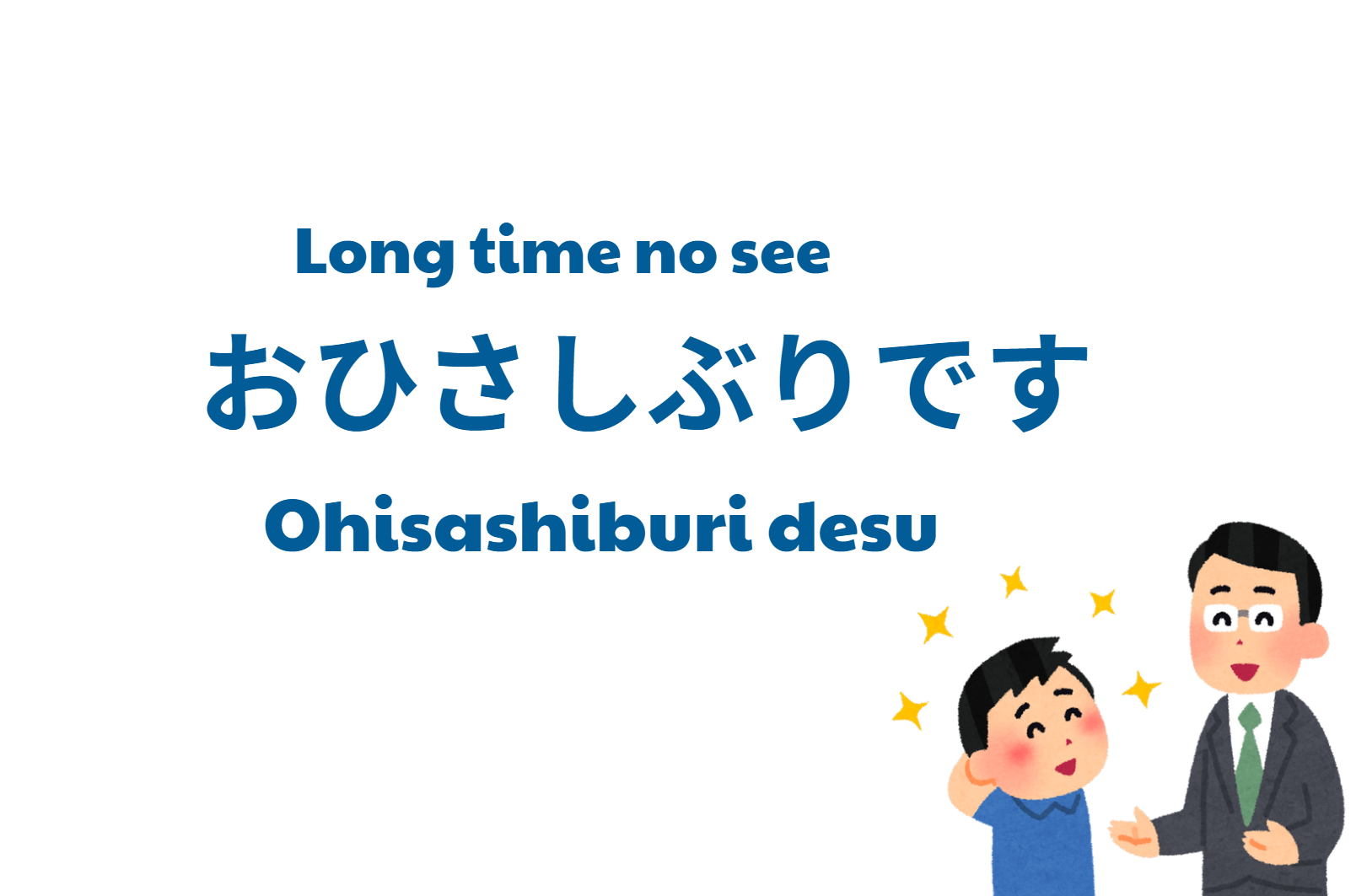
Fun and casual slang greetings
| Phrase | Meaning |
| Yo (よー) | Yo! |
| Oi (おーい) | Hey! |
| Yaa (やあ) | Hi |
| Ossu (おっす) | Hey (informal)Yahoo |
| o (ヤッホー) | Yoohoo (informal and playful |
| Haro (ハロー) | Hello (borrowed from English |
11. Yo (よー)
- Meaning: "Yo!"
- Pronunciation: Yoh.
- Usage: This is a very informal greeting used primarily by younger people, particularly among friends. It's similar to the English "yo" or "hey".
12. Oi (おーい)
- Meaning: "Hey!"
- Pronunciation: Oy.
- Usage: This is used to get someone’s attention informally or casually, such as calling a friend across a room.
13. Yaa (やあ)
- Meaning: "Hi".
- Pronunciation: Yah.
- Usage: This is another casual greeting used primarily among friends or younger people. It’s often heard in casual conversation or Japanese anime.
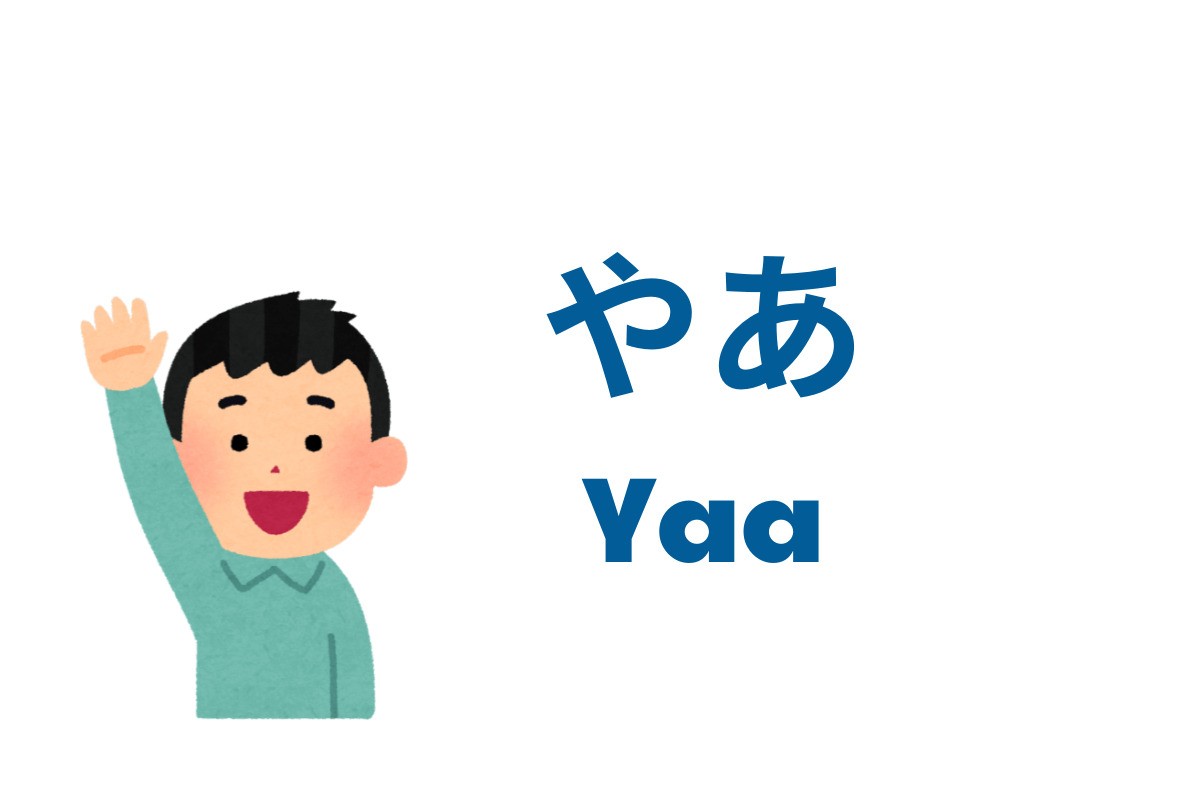
14. Ossu (おっす)
- Meaning: "Hey" (informal).
- Pronunciation: Ohss.
- Usage: This slang greeting is mainly used by men, especially in casual settings or in martial arts communities.
15. Yahoo (ヤッホー)
- Meaning: "Yoohoo" (informal and playful).
- Pronunciation: Yah-hoh.
- Usage: This is used like the English “yoohoo” to call someone’s attention, particularly among younger people, especially girls.
16. Haro (ハロー)
- Meaning: "Hello" (borrowed from English).
- Pronunciation: Hah-roh.
- Usage: A casual greeting derived from English, commonly used by younger generations, particularly in informal contexts or on social media.edia.
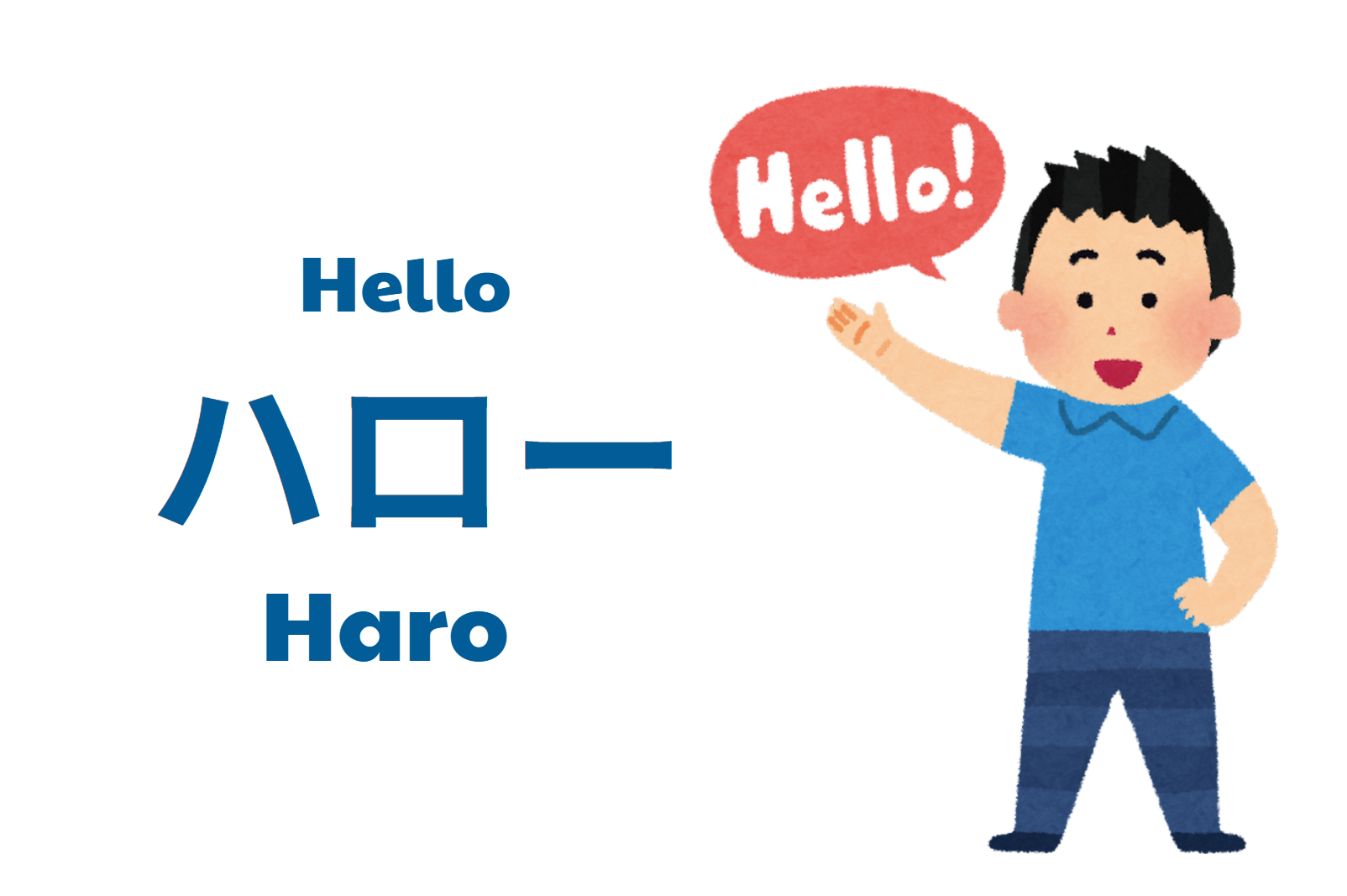
FAQs
1. How do you spell hello in japanese?
In Japanese, "hello" can be spelled in a few ways depending on the context:
-
こんにちは (Konnichiwa): This is the most common way to say "hello" during the day. It’s written in hiragana as "こんにちは."
-
ハロー (Harō): This is a more casual and borrowed form of "hello" from English, used in informal or playful settings. It's written in katakana.
2. How to write hi in japanese?
In Japanese, "hi" is typically written as:
-
やあ (Yā): A casual, friendly way to say "hi" to someone you know well. It's informal and often used among friends.
-
ハイ (Hai): Borrowed from English, this version of "hi" is written in katakana and used in playful or informal contexts.
3. How to say a normal hello in japanese?
A formal way to say "hello" in Japanese depends on the time of day and the level of politeness required. Here are some options:
-
こんにちは (Konnichiwa): While this is common and polite, it’s suitable for general greetings during the daytime.
-
おはようございます (Ohayō gozaimasu): Used in the morning, this is a polite way to say "good morning," which can also serve as a formal greeting.
-
こんばんは (Konbanwa): A polite way to greet someone in the evening, meaning "good evening."
-
初めまして (Hajimemashite): Used when meeting someone for the first time, meaning "Nice to meet you."
-
ご機嫌いかがですか (Gokigen image desu ka): A very formal and somewhat old-fashioned way to greet someone, equivalent to "How are you?" in very polite terms.
Learning how to say "hello in Japanese" can be fun, but practicing on your own can become tedious. Fortunately, the Tandem app connects you with native speakers for language exchange. By downloading the app, signing up, and finding a language partner, you can improve your Japanese greetings and learn when to use them in real-life conversations. Join Tandem today to start learning and practicing Japanese more interactively and engagingly!
Related post

Japanese Family Vocabulary – Essential Words & Usage
.jpg)






